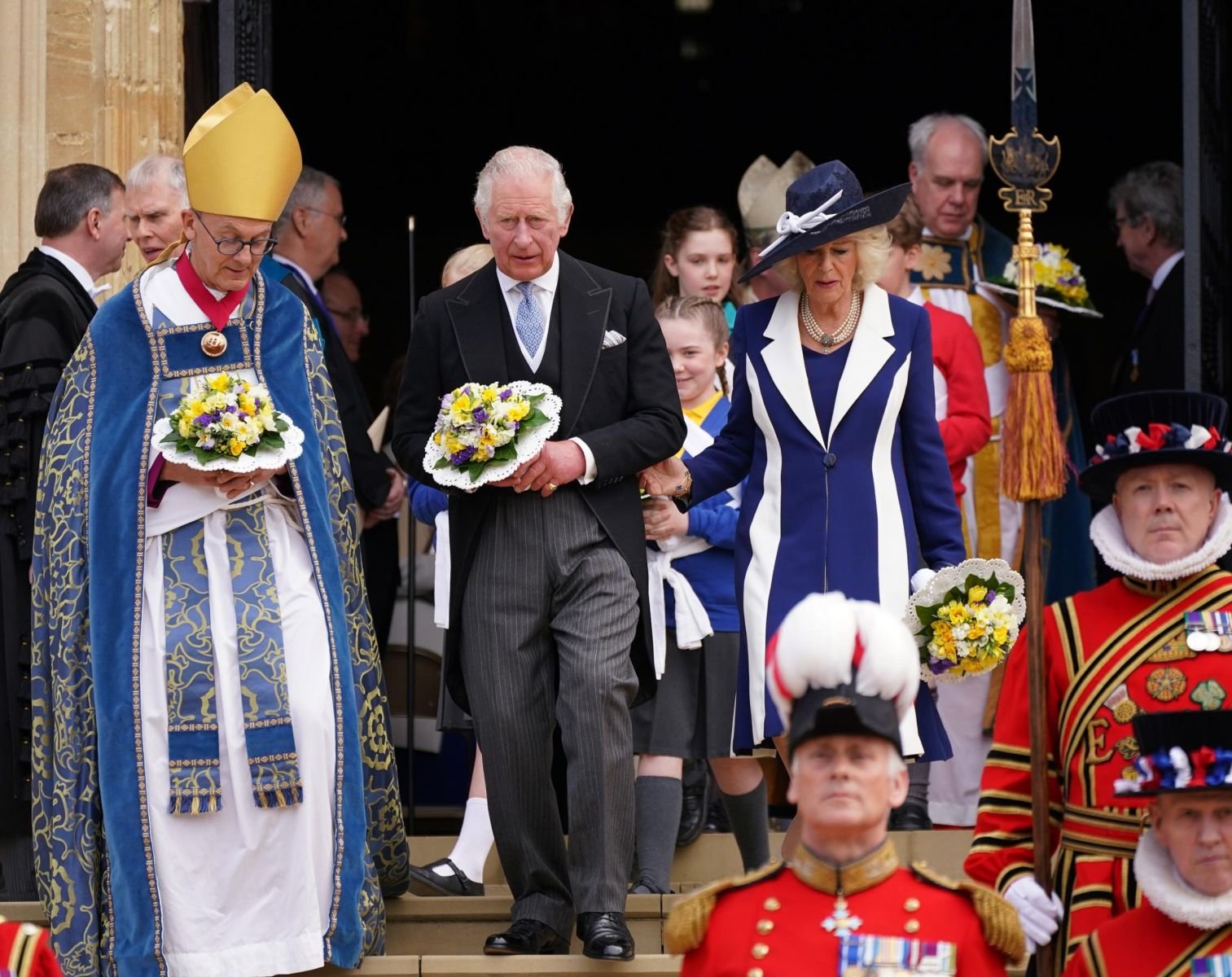Charles III: "Defender of the Faith" or "Defender of Faith"?
As Great Britain's monarch, Charles III is also Supreme Governor of the Church of England; but he has spoken in the past of his duty to defend all religious faiths, not just Anglicanism.

Prince Charles, now King Charles III, as he leaves St. George's Chapel in Windsor Castle on April 14, 2022. (Photo by ANDY RAIN/ EFE/ MAXPPP)
.King Charles III not only became Britain's monarch immediately upon the death of his mother, but he also became the Supreme Governor of the Church of England. And at his coronation he will be granted the symbolic title "Defender of the Faith", as have all British sovereigns since 1521. But in an interview in 1994 when he was still only the Prince of Wales and heir to the throne, Charles mused over the exact meaning of that title."
I, personally, you see, would much rather see it as 'Defender of Faith'... not the faith," he said.His remarks at the time caused a great stir among many in the Church of England." I think these are the words of a young man who did not understand the difficulties associated with the issue," said Gavin Ashenden, who was personal chaplain to Elizabeth II from 2008-2017."Today, he would be more careful," Ashenden said.
Indeed, Charles backtracked on his comments during an interview in 2015 with the BBC, saying he would prefer to be "seen as a protector of faiths", out of concern for "the inclusion of other people's faith and their freedom to worship in this country".
Open to other religions
Without questioning the symbolism of the title, his statement reflects the new sovereign's openness to other religions and spiritualities in a multi-faith, but increasingly secularized, United Kingdom.In 2016, for the first time, non-denominational citizens became the majority in the country." Charles has always tried to have a discourse that respects his dual role as defender of the Anglican faith and future king of the people of the United Kingdom and the Commonwealth, in a system where the concept of secularism, in the French style, does not exist," noted Jane Stranz, a Protestant pastor who is involved in dialogue with Anglicans.
Hervé Picton, professor of British civilization and author of A Short History of the Church of England (Cambridge Scholars Publishing, 2015), said the King's spiritual position is a "reflection of the liberalism and ecumenism of the Church of England itself, which has been trying to open up to other religions and other faiths since the beginning of the 20th century.Charles III is also familiar with ecumenism. He grew up in Presbyterian-dominated Scotland as the son of a man (Prince Philip) who was Greek Orthodox until his marriage to Elizabeth.Charles visited Mount Athos in 2004, an important center of Eastern Orthodoxy where there is a legally independent monastic community with twenty monasteries.
Closeness to Islam
The new king has also demonstrated a closeness to Muslims, who – according to a 2019 report from the Office of National Statistics – make up nearly 6% of the British population. Charles has shown a desire to build "bridges of understanding" with Islam and, on various occasions has said he's studied the Quran.
As recently as last April, he and his wife Camilla sent greetings to all Muslims in the United Kingdom and the Commonwealth at the start of Ramadan.He praised "all that can be learned from the spirit of Ramadan — generosity, abstinence, gratitude and sharing in prayer". "His openness came from a belief that he had a broader role to play. Even though his coronation will likely take place at Westminster Abbey, using a clearly Anglican liturgy," said Jane Stranz.
A controversial spirituality
But is the king a believer?In his authorized biography, written by Jonathan Dimbleby, the former Prince of Wales explained that he sees his future title as "defender of faith" as a defense of "the pattern of the divine" that is present "in all of us", though "expressed in so many different ways". Imbued with a certain spirituality, some of his remarks on living organisms may have shocked the scientific community.
In 1996, he accused science of exercising a "tyranny over our understanding". Four years later, he claimed that "the sacred trust between humanity and the creator" for "man's duty of stewardship to the earth" was "smothered by almost impenetrable layers of scientific rationalism". Known for his environmental advocacy, Charles praised the "visionary outlook" of the late Rudoph Steiner (d. 1925) during the keynote address at the 2017 convention of the General Anthroposophical Society, the esoteric spiritual movement Steiner founded."
It's complicated to know whether or not (Charles) has faith," acknowledged Ashenden, pointing out that there's a difference between a monarch's public faith, which is a matter of duty, and his or her private faith." For his mother, it was clear that the two were connected," the former chaplain continued."With Charles we don't know: there may be a difference between the faith of his heart and his public faith."


 Votes : 0
Votes : 0









